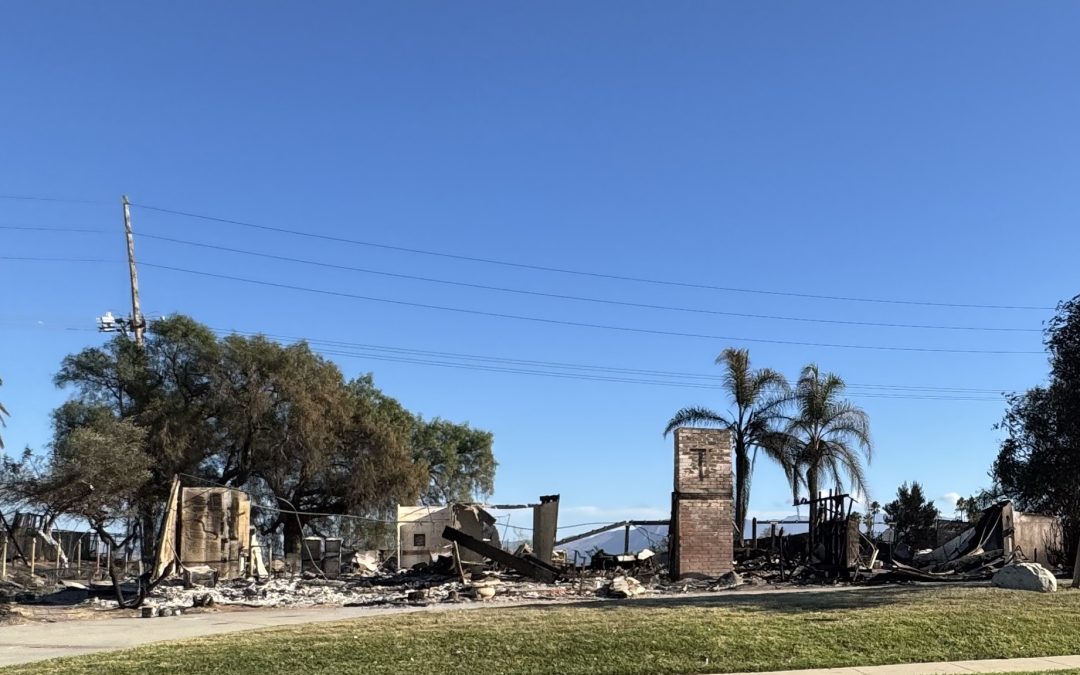Experiencing the devastation of losing your home to a wildfire is both overwhelming and traumatic, disrupting not only your residence but also your sense of security. In the aftermath, understanding how to effectively navigate dealings with insurance companies becomes crucial in rebuilding your life.
This guide is designed to provide you with essential steps and expert tips to manage the insurance claims process smoothly, ensuring you receive the support and compensation you need during this challenging time.
Immediate Steps to Take After a Wildfire
Experiencing a wildfire is a traumatic and overwhelming event. During the chaos, knowing the immediate steps to take can help ensure your safety, secure your property, and lay the groundwork for a successful insurance claim. Here’s what you need to do:
Ensure Safety and Contact Authorities
Your first and foremost priority after a wildfire is the safety of yourself and your loved ones.
- Check for Injuries: Once you’ve reached a safe location, make sure everyone is accounted for and assess for any injuries. If anyone is hurt, call emergency medical services immediately.
- Stay Informed: Keep updated on the status of the wildfire through local news and official channels. Wildfires can change direction rapidly, so it’s essential to stay vigilant.
- Follow Evacuation Orders: Adhere to any evacuation orders from authorities. Do not return to your property until officials have declared it safe to do so.
Secure Your Property to Prevent Further Damage
Once authorities have confirmed it’s safe to return, take steps to protect your property from additional harm.
- Assess Structural Damage Carefully: Wildfires can cause extensive damage to the structural integrity of buildings. Approach your property with caution and be mindful of potential hazards like weakened structures or hot spots.
- Prevent Weather Damage: Cover any openings in the roof, walls, or windows with tarps or plywood to shield your home from rain, wind, or debris.
- Board Up Openings: Secure doors and windows to prevent unauthorized access. This deters vandalism, theft, and additional damage.
- Shut Off Utilities: If the utility companies haven’t already done so, turn off your gas, electricity, and water to prevent further hazards like gas leaks or electrical issues.
- Mitigate Damages: Your insurance policy likely requires you to take reasonable steps to prevent further damage. This might include removing undamaged items to a safe location or starting the drying process to prevent mold growth if water was used to extinguish fires.
Document the Damage Thoroughly
Accurate documentation is vital for your insurance claim and can significantly impact the compensation you receive.
- Take Photographs and Videos: Before moving or cleaning anything, document the damage extensively. Capture images of all affected areas from multiple angles, including structural damage, landscape damage, and personal belongings.
- Create an Inventory of Damaged Items: List all damaged or destroyed items. Include detailed descriptions, purchase dates, original costs, and estimated replacement values.
- Save All Receipts: Keep receipts for any expenses related to the wildfire, such as hotel accommodations, meals, clothing, or emergency repairs. These may be reimbursable under the “additional living expenses” portion of your policy.
- Do Not Discard Damaged Items: Unless they pose a safety hazard, avoid throwing away damaged items until after the insurance adjuster has assessed them. They serve as physical evidence of your losses.
Contact Your Insurance Company Promptly
Initiating the claims process early can help you receive assistance faster.
- Notify Your Insurer Immediately: Contact your insurance agent or company hotline as soon as possible to report the wildfire damage. Provide them with necessary details and follow their instructions on the next steps.
- Request an Advance: If you need immediate funds for essentials like clothing or toiletries, ask your insurer for an advance on your claim settlement.
- Understand Your Policy Obligations: Ask for a copy of your insurance policy if you don’t have one readily available. Familiarize yourself with your coverage limits, deductibles, and any responsibilities you have during the claims process.
Seek Support and Professional Guidance
Navigating the aftermath of a wildfire can be emotionally and mentally taxing.
- Contact Family and Friends: Reach out to loved ones for emotional support. They can provide comfort and assistance during this difficult time.
- Consult Professionals: Consider hiring professionals to assist you. A public adjuster can help with the claims process, while restoration experts can assess and begin repairing damage. Environmental specialists may also be needed to address issues like soil erosion or contamination. If complications arise, consulting a legal professional experienced in wildfire insurance claims may be beneficial.
Taking these immediate steps after a wildfire not only ensures your safety and security but also positions you for a more straightforward and successful insurance claim.
Remember, while the situation is stressful, staying organized and proactive can make a significant difference in your recovery process.

